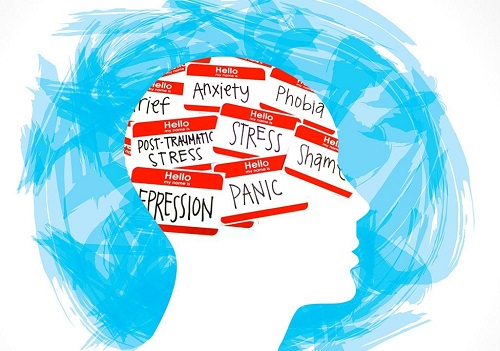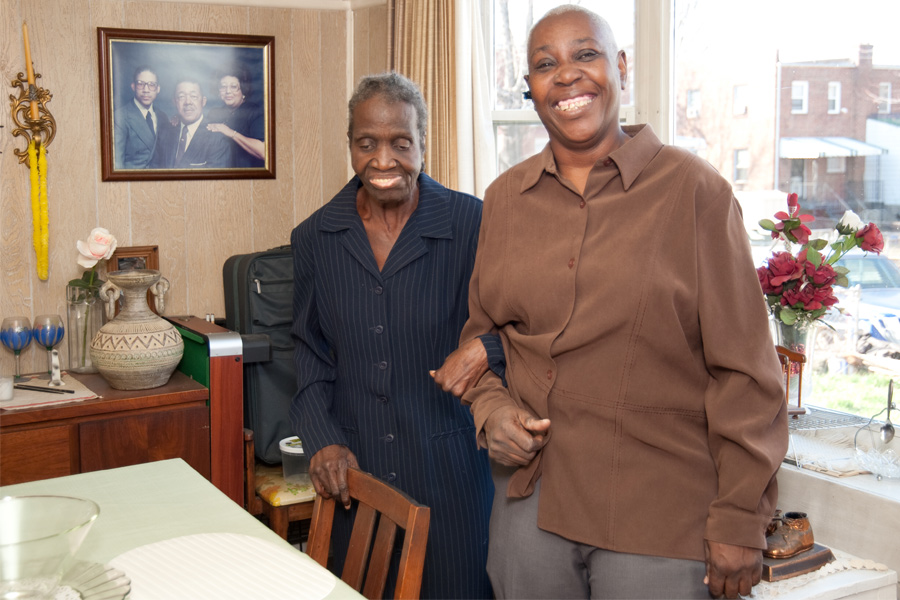10 Mental Health and Wellness Quarantine Tips

It’s a new world out there—one that has many of us working from home for the first time, staying in as much as possible, and balancing many responsibilities at once. It’s normal to feel stressed, anxious, or overwhelmed. Remember, we’re all in this together.
Eileen M. Feliciano, Psychologist, PsyD, MSEd, shared some excellent tips for maintaining your mental health through the coronavirus crisis. In honor of Stress Awareness Month, we wanted to pass along some of our favorites.
You can read her full list here.
Here are 10 tips that resonated with us that we hope will help.
Dress for the social life you want, not the social life you have.
Get showered and dressed in comfortable clothes, wash your face, brush your teeth. Take the time to do a bath or a facial. Put on some bright colors. It is amazing how our dress can impact our mood.
Find some time to move each day, again daily for at least thirty minutes.
If you do not feel comfortable going outside, there are many YouTube videos that offer free movement classes, and if all else fails, turn on the music and have a dance party!
Reach out to others, you guessed it, at least once daily for thirty minutes.
Try to do FaceTime, Skype, phone calls, texting—connect with other people to seek and provide support. Do not forget to do this for your children as well. Set up virtual playdates with friends daily via FaceTime, Facebook Messenger Kids, Zoom, etc—your kids miss their friends, too!
Stay hydrated and eat well.
This one may seem obvious, but stress and eating often do not mix well, and we find ourselves over-indulging, forgetting to eat, and avoiding food. Drink plenty of water, eat some good and nutritious foods, and challenge yourself to learn how to cook something new!
Give everyone the benefit of the doubt, and a wide berth.
A lot of cooped up time can bring out the worst in everyone. Each person will have moments when they will not be at their best. It is important to move with grace through blowups, to not show up to every argument you are invited to, and to not hold grudges and continue disagreements. Everyone is doing the best they can to make it through this.
Everyone find their own retreat space.
Space is at a premium, particularly with city living. It is important that people think through their own separate space for work and for relaxation. For children, help them identify a place where they can go to retreat when stressed. You can make this place cozy by using blankets, pillows, cushions, scarves, beanbags, tents, and “forts”. It is good to know that even when we are on top of each other, we have our own special place to go to be alone.
Expect behavioral issues in children, and respond gently.
We are all struggling with disruption in routine, none more than children, who rely on routines constructed by others to make them feel safe and to know what comes next. Expect increased anxiety, worries and fears, nightmares, difficulty separating or sleeping, testing limits, and meltdowns. Do not introduce major behavioral plans or consequences at this time—hold stable and focus on emotional connection.
Notice the good in the world, the helpers.
There is a lot of scary, negative, and overwhelming information to take in regarding this pandemic. There are also a ton of stories of people sacrificing, donating, and supporting one another in miraculous ways. It is important to counter-balance the heavy information with the hopeful information.
Find something you can control, and control the heck out of it.
In moments of big uncertainty and overwhelm, control your little corner of the world. Organize your bookshelf, purge your closet, put together that furniture, group your toys. It helps to anchor and ground us when the bigger things are chaotic.
Reach out for help—your team is there for you.
If you have a therapist or psychiatrist, they are available to you, even at a distance. Keep up your medications and your therapy sessions the best you can. If you are having difficulty coping, seek out help for the first time. There are mental health people on the ready to help you through this crisis. Your children’s teachers and related service providers will do anything within their power to help, especially for those parents tasked with the difficult task of being a whole treatment team to their child with special challenges. Seek support groups of fellow home-schoolers, parents, and neighbors to feel connected. There is help and support out there, any time of the day—although we are physically distant, we can always connect virtually.
We will add that Iona is here for you too! If you’re caring for an older loved one at home right now…worried about a family member afar…or are an older person yourself looking for resources and support, please reach out. Contact 202-895-9448 and press 1 for our Helpline, or email info@iona.org.
And thanks again to Eileen M. Feliciano for creating this list. To read her full list of advice, click here.
Related Articles

The Stories of Dementia in the District

A Couple’s Vows Create Opportunities to Age Well

Can You Imagine Taking Three Buses to Get to Iona?

